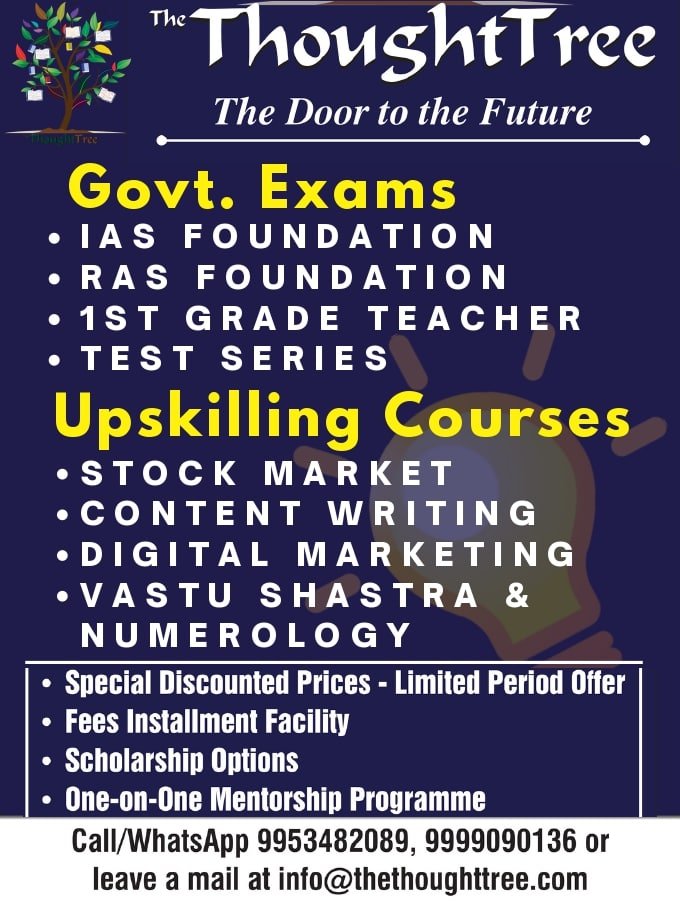One of the most common questions among the UPSC aspirants is “How should I prepare for the UPSC IAS Interview?”, “What questions are mainly asked in IAS interview?” and “UPSC Interview Tips”.
Today in this article, we will answer all your questions related to the UPSC interview but before that, let’s see some basic details about the Civil Services Examination.
Civil Services Examination is carried out in three stages: Prelims, Mains, and Interview. UPSC Interview is the closing stage in the preparation journey of the UPSC Civil Service Examination. It comprises 275 marks, and there are no minimum qualifying marks. The marks acquired by the aspirant in the Main Exam, i.e. the written exam and in the interview, would decide the ultimate ranking. The aspirants will be allocated various posts keeping in mind the ranks secured by the aspirant in the Exam.
UPSC interview is more of a life-changing event and will make your dream of entering the world of bureaucracy come true. The interview is planned to determine the intelligence quotient of the aspirant. This is an analysis of intellectual integrity and character and their interest in current happenings in a broad sense.
However, before explaining further about IAS, you must be wondering how to prepare for the IAS interview? I will highly recommend The Thought Tree (T3). T3 is one of the promising and leading IAS coaching in Jaipur, Rajasthan.
Programme Highlights of The Thought Tree’s IAS Coaching
- Along with the exam preparation, we also mentor students to prepare for the UPSC IAS Interview.
- We have academic experts and professionals who combine academic theory with practical experience and industry knowledge, providing quality learning experiences and sharing their knowledge with the students.
- We provide individual guidance regularly for clearing doubts & keeping them motivated while preparing for this challenging exam.
- Helping students in understanding difficult concepts.
- Our mentors will tutor and clear all your doubts to prepare for the UPSC exam.
You are our responsibility, and we will be with you to guide you until the selection takes place.
Types of Question Asked in UPSC Interview
Firstly, let’s take a look at what type of questions are generally asked in the UPSC interview:
- Profile Related: Name, native place, academic background, work experience and hobbies.
- Current Events: Your opinions on the current events topic based on the last year.
- Circumstantial Questions: It is asked to evaluate your integrity as a bureaucrat or how reliably you’ll be able to deal with the ground situations.
- Communication Skills Questions: This is generally asked to evaluate how you conduct yourself in a formal or public environment to see whether you get anxious or are self-confident while answering the questions asked to you by the board.
Now, let’s see some UPSC Preparation Tips. These tips will help in boosting your confidence while preparing for the UPSC Interview.
Read More: Timetable for UPSC Preparation
Best UPSC Interview Tips
Let’s delve into this topic for some UPSC Interview Tips, which will be helpful to the aspirants who are going to appear for the UPSC Civil Services interview.
1. Don’t Procrastinate; Start Now!
As soon as you are done with the Mains exam, UPSC aspirants must begin preparing for the interview. Don’t wait any longer for the mains result. Procrastination and success are contradictory to each other, which is correct. Have confidence in yourself and be ahead of the time. Get going to work on your personality and improve your communication skills.
2. Be Friends with Yourself
Commonly, most humans don’t get their time and don’t know much about themselves. Try to examine your unique attributes and self-assess your beliefs and values. This will significantly assist you in answering this type of question- “Tell us something about yourself.”
3. Be thorough with your DAF (Detailed Application Form)
Mostly the interview questions are asked from DAF and the information that you have filled in DAF. To avoid blunders while answering the questions in the interview, the best thing would is to be thorough with your DAF to avoid any mismatch of details such as hobbies or your work experience.
4. Use Correct Diction
The interview panel members will evaluate your answers, so try to speak fluently while expressing your opinions, use good vocabulary words, and be eloquent while answering the questions.
5. Inculcate a Positive Attitude
Project positive energy and speak with confidence, engage firmly and listen attentively to the interviewer. Think positively and keep an optimistic attitude.
Read More: Can an Average Student Crack IAS?
6. Improve your Conversational Skills
Improve your way of speaking, gesture, posture, and how you express your viewpoint to the panel. All this plays a vital role. Having a good command over your speech making can earn you some extra brownie points. Hence, this is one of the most important UPSC Interview Tips.
7. Read Newspapers
Generally, most of the UPSC interview questions are from current events around the world. Read important current news, government policies, elections. Keep up with the daily news and revise the current events of the past three months. Learn how to read newspaper of UPSC.
8. Overconfidence is Bad
Don’t be overconfident because overconfidence may be your downfall. UPSC interview is demanding and challenging. So, listen carefully while they are asking the question because overconfidence can come across as insincerity, and it causes you to become arrogant.
9. Don’t Make Things Up
Usually, many aspirants mention their hobbies to fill the column but have no idea about them. Be aware of the hobbies you’ve mentioned and say if you like to paint, you should know about painting techniques and styles used and art mediums.
10. Pay Attention to the Optional Subjects
Many students don’t consider the preparation of optional subjects as necessary. From the interview point of view, optional subjects play a significant role. This is the favourite section of the interview panel. So, acknowledge them as well and prepare them with equal consideration.
11. Obtain all the Details of your State and City
As UPSC is more or less about administration, IAS interview preparation is incomplete without knowing about your country’s geological data and other information, especially about the state and city in which you reside. Be ready with the history of your city and state in all spheres. This is one of the most important UPSC Interview Tips.
12. Mock Interview
Take the mock-interview test before the final interview, which will help you avoid any mistakes. Your mentors and experts can help you with that.
13. Don’t Fumble and Answer Confidently
Take a deep breath whenever you feel anxious. Don’t fumble and answer calmly. The board doesn’t expect you to know everything under the sun, so don’t worry if you don’t know the answer, don’t make anything up. Just move forward with another question and say, “I will have to read more to answer; I’ll have no idea.”
Read More: How to Crack Civil Service Exam
14. Never Break Your Principles
On many occasions, the board members will try to confuse the students and put you through situations where you will have to break your principles and moral values. Never compromise, and keep in mind that it is just for testing the resistance to your beliefs and values.
15. Role of Gestures
While answering questions, your body language must be regulated and coordinated, and your gesture, posture, or else you won’t be able to convey your message properly.
16. Use Your Common Sense
Many students get nervous and fear facing the interview, answering even the most basic and straightforward questions incorrectly. Always think before you answer and use your common sense.
17. Dress Code
The dress code is super important as the first impression is the best. You should dress in a presentable manner on the day of the interview. Women aspirants can wear Indian, such as sari or churidar, and for men, a light shirt and dark trousers will give a professional appearance.
18. Be Ready with all the Documents
After reaching the venue and finding out that some documents are missing will cause problems, so be ready, check all your documents, certificates, ID cards with you before arriving at the venue.
19. Rehearse in front of a Mirror
Practising or rehearsing in front of the mirror will help you to eliminate nervousness and hesitation. Try to answer some basic questions such as ‘What is your name?’, ‘Where do you reside?’ etc. It will significantly help you and to sound confident on the day of the actual interview.
20. Don’t Make-Believe
Speak the truth and don’t be deceitful or give fake data which is incorrect. Just for impressing the interview panel, don’t pretend to be an ideal student. And don’t pretend and say yes to unrealistic thoughts.
Read More: Life of IAS Officer
21. Steer Clear of Stress
Don’t stress before and during the UPSC IAS Interview; aspirants should be refreshed and clear their minds off the unwanted thoughts.
22. Never be Afraid of Rumours
Don’t presume about rumours and don’t think much about interviewers or myths about the interview. Rumours can be an obstruction, and you won’t focus on the IAS interview preparation. Deal with the interviewer with a positive attitude, be optimistic, and sound energetic. This will boost your confidence.
As IAS is one of the toughest exams in the country, an aspirant must be having some queries regarding IAS interviews. So, to assist the aspirants, mainly novice aspirants, below is a list of Frequently Asked Questions and Answers, respectively.
Final Thoughts
So, to wrap it up, I hope that these UPSC Interview Tips will be helpful and help you pursue your dream of becoming an IAS officer. Believe in yourself and remember a goal without a plan is just a wish.
Ace the Interview. Give your 100% to make it a success. All the best!
FAQs
Q1. Is the UPSC Interview Difficult?
It won’t be difficult if you are thorough with your DAF and read a newspaper for current events. The interview panel is there to choose you and not reject you. In addition, after getting enough practice through mock interviews before the final interview, you already have got enough practice for the same. Finally, if you have successfully cleared prelims and mains, then have confidence in yourself as you already have a stronghold to help you in the interview. Remember, in this interview; It is an attitude rather than aptitude which will guarantee success.
Q2. Can I lie in the UPSC Interview?
Never lie in the interview. Keep in mind that honesty will always reward you. Give genuine answers, Be honest, and always answer truthfully. The board members are experienced. They can tell when someone is lying while giving answers.
Q3. What happens if I fail the UPSC Interview?
The aspirants who have cleared the Mains exam but have failed in the interview have many alternative career options such as recruitment in government sectors and ministries if the government accepts the Union Public Service Commission recommendations. They can get a job in the private sector as well.
Q4. Who takes the IAS Interview?
The board members of UPSC conduct the interview. It consists of four members and a chairperson. The different types of interviews are conducted based on the post. Then only the four members are invited. These four members are experts in their respective fields, such as senior retired officers, scientists, professors.





